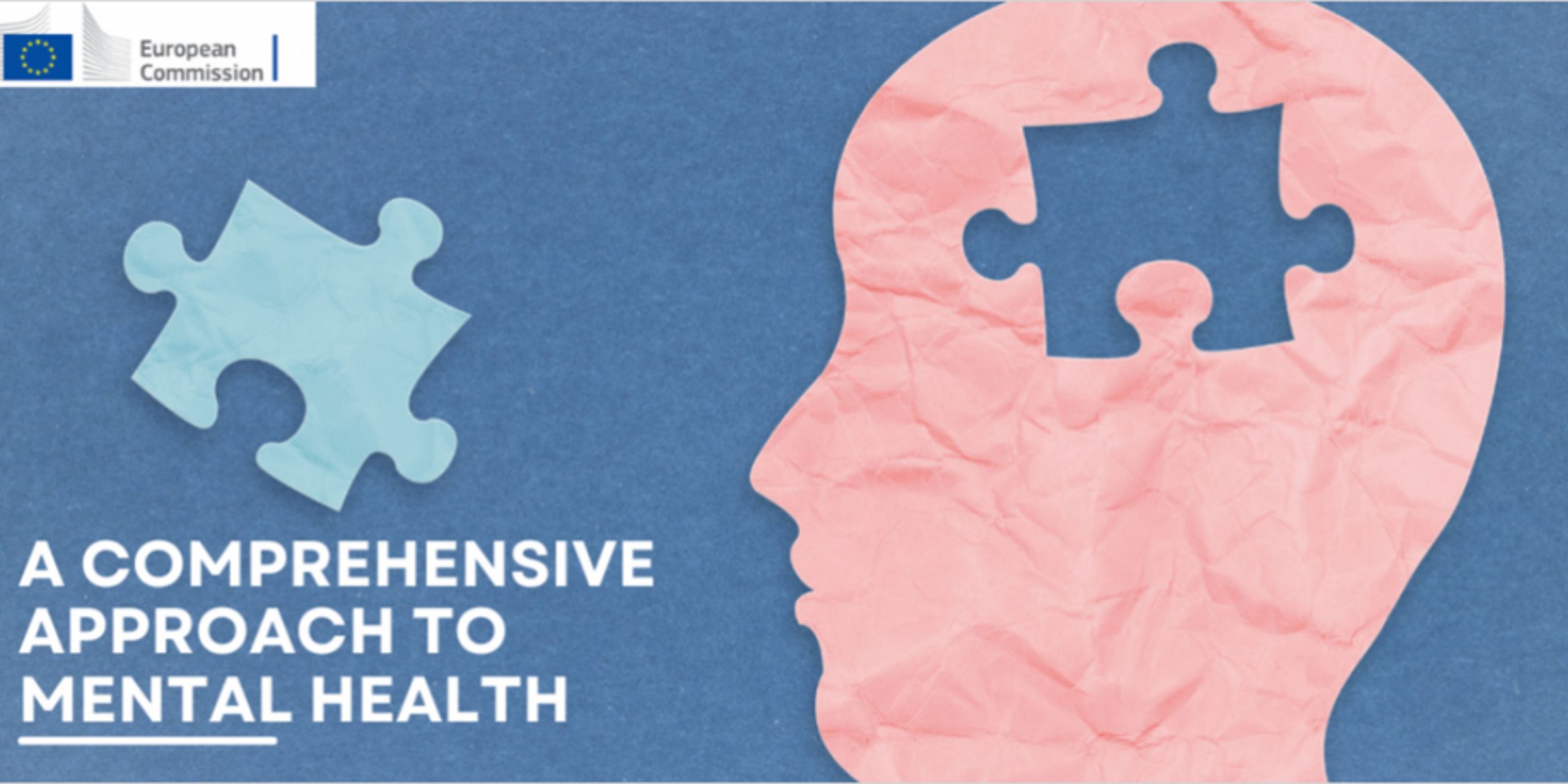The 7th of June, delivering on the commitment of President von der Leyen in the 2022 State of the Union Address, the Commission added a pillar to the European Health Union: a new comprehensive approach to mental health.
This approach is a first and important step to put mental health on par with physical health and to ensure a new, cross sectoral approach to mental health issues. With 20 flagship initiatives and €1.23 billion in EU funding from different financial instruments, the Commission will support Member States putting people and their mental health first.
This communication comes timely: before the COVID-19 pandemic, mental health problems already affected 1 in 6 people in the EU, situation which has worsened with the unprecedented crises experienced over the past years. The cost of non-action is significant, amounting to €600 billion every year.
Mental health matters: key elements to tackle mental health issues
Against the backdrop of significant technological, environmental and societal changes, affecting people’s ability to cope, EU action on mental health will focus on three guiding principles:
(i) adequate and effective prevention,
(ii) access to high quality and affordable mental healthcare and treatment, and
iii) reintegration into society after recovery.
This comprehensive approach looks at mental health across all policies to recognise the multifaceted risk factors of mental-ill health. Following this approach, concrete actions will cover a broad area of policies and include efforts to:
- Promote good mental health through prevention and early detection, including through a European depression and suicide prevention initiative, a European Code for Mental Health and strengthened research on brain health.
- Invest in training and capacity building that reinforces mental health across policies and improves access to treatment and care. Actions will include training and exchange programmes for professionals and technical support for mental health reforms at the national level.
- Ensure good mental health at work by raising awareness and improving prevention. This will be done for instance through EU-wide awareness raising campaigns by the European Agency for Safety and Health at Work (EU-OSHA) and a possible future EU initiative on psycho-social risks at work.
- Protect children and the young during their most vulnerable and formative years, in a context of increasing pressures and challenges. Measures include a a child and youth mental health network, a prevention toolkit for children addressing the key health determinants of mental and physical health, and better protection online and on social media.
- Address vulnerable groups by providing targeted support to those most in need, such as the elderly, people in difficult economic or social situations and migrant/refugee populations. A special focus includes conflict-affected populations, notably people (in particular children) displaced from Ukraine and children in Ukraine subject to the trauma of war.
- Lead by example at the international level by raising awareness and providing quality mental health support in humanitarian emergencies.
Background
Even before the COVID-19 pandemic, mental health problems affected around 84 million people in the EU, and these figures have only worsened since then. The pandemic has placed additional pressures on mental health, especially among young people and those with pre-existing mental health conditions. In her State of the Union address in September 2022, President Ursula von der Leyen called for a new initiative on mental health.
The initiative also addresses calls from the European Parliament, and a proposal put forward by citizens in the context of the Conference on the Future of Europe. The cost of non-action on mental health is significant and projected to rise, following global challenges linked to social, political and environmental changes, increased digitalisation, economic pressures and radical shifts in the labour market. The total costs of mental health issues – which include the costs to health systems and social security programmes, but also lower employment and worker productivity – are estimated to amount to more than 4% of GDP across EU countries, equivalent to over €600 billion per year.
Source: European Commission | News (https://rb.gy/3pp44)
